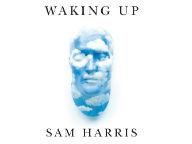Faculty News
—
Professor Edward Altman shares his views on the state of the credit market
—

Excerpt from Bloomberg -- "It's been lasting for over 6 years now. And I've been predicting for the last 7-8 months that we were probably in the 7th inning of a 9-inning game. Now I think we're in the 9th inning, maybe over. Except the Fed is still kind of anxious about things, and as you know this week, they didn't raise interest rates. So they may try to keep that cycle going a little bit longer, but it's just about over."
Faculty News
—

Excerpt from Bloomberg -- "It's been lasting for over 6 years now. And I've been predicting for the last 7-8 months that we were probably in the 7th inning of a 9-inning game. Now I think we're in the 9th inning, maybe over. Except the Fed is still kind of anxious about things, and as you know this week, they didn't raise interest rates. So they may try to keep that cycle going a little bit longer, but it's just about over."






















